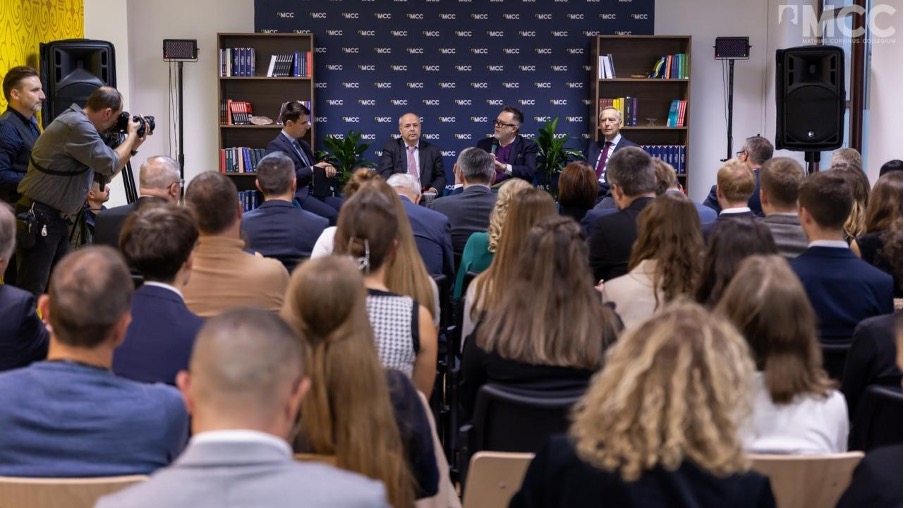
Left to right. Sándor Gallai, Rod Dreher, and Jan Figel.
Photo: MCC
The Mathias Corvinus Collegium (MCC), Hungary’s ambitious conservative educational and research hub, opened its newest campus in Dunaszerdahely (Dunajská Streda), Slovakia, to offer educational programs and training to the local Hungarian youth and to establish another bridge between Hungary and its sizable diaspora. Celebrating the launch, MCC hosted a panel discussion on Thursday, October 26th, with former European Commissioner for Education Jan Figel, and The European Conservative’s own Rod Dreher.
🎉 The new #MCC centre in Dunaszerdahely has opened its doors!
— Balázs Orbán (@BalazsOrban_HU) October 26, 2023
➡️ The centre provides hundreds of students with the opportunity to participate in free educational programs, irrespective of their background.
🗣️ The opening ceremony featured a round table discussion with… pic.twitter.com/ht0dhJkTlW
The new campus in Slovakia, which has already begun providing hundreds of Hungarian students with free education to complement their regular studies and develop their professional careers.
“The goal is common: to integrate the outstanding Hungarian students from Slovakia into a regional knowledge network, so that they can use the skills and international experience they have acquired here for the benefit of their local community,” Milán Constantinovits, MCC’s professional deputy general director said before the June launch.
Apart from assimilation, one of the biggest challenges the Hungarian diaspora in all neighboring countries faces is emigration. The youth belonging to the Hungarian minority communities often find themselves at a disadvantage in the job market compared to the majority populations, driving many of them to try to build careers in Hungary or Western Europe instead.
The MCC educational and training programs aim to prevent such ‘brain drain.’ Krisztián Pomichal, head of the Dunaszerdahely project, points to his own personal example as a Hungarian minority in Romania: “I was born in Szerdahely [Romania] and I went to high school there. Although I went to university in Budapest, I returned home almost immediately. We want to strengthen this kind of local patriotism … with the headquarters in Dunaszerdahely.”
“MCC also contributes to a developed, vibrant intellectual life here in the region, which then helps students to return home, either from Hungary or from Western Europe, because they see that we have the same opportunities as they have there. We are working to make sure that we have them,” Pomichal added.
Commitment to the local community has also been emphasized by the MCC leadership in Budapest: “In addition to love of the homeland, love of the region, love of the whole Hungarian nation, love of the local community should also be fostered.”
This is also consistent with the philosophy of MCC’s founder, philanthropist and businessman András Tombor: every country needs its own elite who are willing and able to work for their homeland in order to maximize national sovereignty. This is especially true for national minorities. To prevent the disappearance of the Hungarian diaspora, it is essential to cultivate a competent local Hungarian leadership segment that can become the fertile ground for an economically, culturally, and scientifically advanced community.
Without a national elite, there can be no independence, according to Tombor. A strong country must be capable of identifying and nurturing its best and brightest, as they are the ones who can ensure the stability and future success of the nation in the fields of science, economics, or even politics. For decades, Hungary struggled to keep pace with other European countries in the realm of education, especially elite education. However, in 1996, the Mathias Corvinus Collegium was established with the mission to provide exclusive, small-group education for Hungarian talent that complements public education, from upper primary school to adulthood.
MCC has grown into Central Europe’s largest talent development and elite education institution, providing education for more than 7,000 students at 28 locations.
